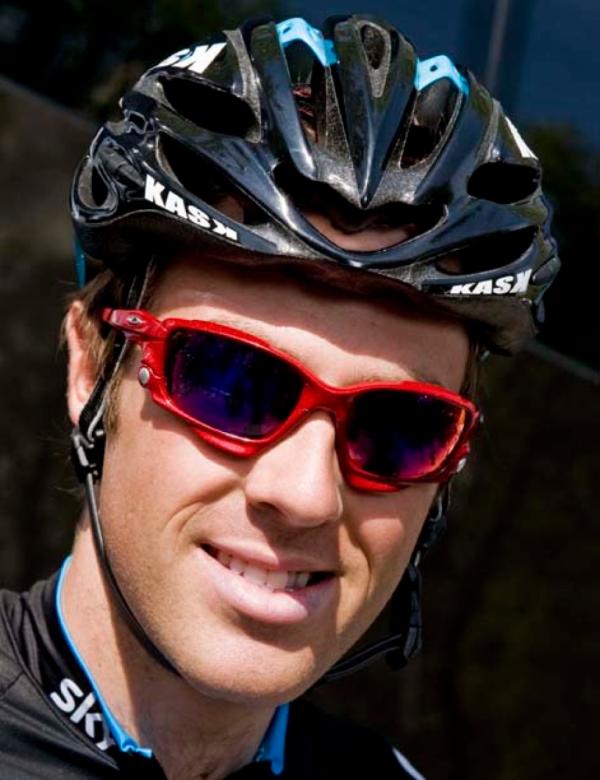Team Sky don blood red glasses for World Haemophilia Day
Oakley and Sky support Alex Dowsett’s campaign to raise awareness about haemophilia


Team Sky’s riders at the Vuelta Castilla y León will take to the start line of Sunday’s final stage wearing blood red Oakley Jawbone glasses to show their support for World Haemophilia Day. The initiative was inspired by Sky’s Alex Dowsett, who has the disease and acts as an ambassador for the World Haemophilia Society.
“World Haemophilia Day was coming up and I’d been chatting with the British Haemophilia Society as well as the World Haemophilia Society about what I can do as an ambassador,” Dowsett told Cyclingnews.
“There’s an event on at Silverstone motor-racing circuit which I can’t attend, but I spoke to (Sky PR chief) Fran Millar and asked if there was any chance I could wear something red on the 17th, and the response I got was incredible."
“Oakley came on board and said they would supply the team all with red Oakleys to mark the day. They are a blood red colour to mark the occasion. In addition, the Sky Velo Club, which is made up of members of the Sky team as well as of Sky Television, are doing the Marmotte sportive this year in support of the Haemophilia Society, which is going to raise about £1,500 for it. That money will all go to charities in Bangladesh.”
Dowsett explained that parents whose have children with haemophilia and other bleeding disorders tend to be extremely protective of them, but he believes that this approach may not be the best when it comes to keeping haemophilia manageable.
“It’s fairly unheard of for athletes to have haemophilia because of the nature of the disease. The tendency is for parents to wrap their kids up in cotton wool, which I think is exactly what you shouldn’t do. Contact sports are not ideal for haemophiliacs, but there are plenty of sports out there like cycling that are relatively low risk,” said Dowsett.
The British rider said that he has always been encouraged to lead an active lifestyle. “Things like football and rugby aren’t the best, but my mum had me doing swimming, as well as athletics and sailing, even a bit of motor-racing. I think being fit is crucial. I know haemophiliacs who haven’t got the disease as badly as me and they are inundated with problems, and I think that’s just due to an inactive lifestyle. You’ve got to keep your joints and muscles in shape."
Get The Leadout Newsletter
The latest race content, interviews, features, reviews and expert buying guides, direct to your inbox!
“Precautions have to be taken, but my team is fully aware of it, and the other riders are as well. I’ve got my medication always ready in the team car behind. When I have crashed it hasn’t been as bad as the doctors had thought it would be. For instance, last year I broke my shoulder in Holland. When I was young they would have said that would have meant a month in hospital, but I was back on the road in 10 days. I think it shows that as long as the right care is taken and the haemophilia is treated with respect then pretty much anything, within reason, is possible.”
Dowsett added: “The medication for haemophilia is horrendously expensive, but that’s only part of it. Knowledge is key to keeping young haemophiliacs fit and healthy, and I think being fit is half of it when it comes to keeping haemophilia manageable.”
Peter Cossins has written about professional cycling since 1993 and is a contributing editor to Procycling. He is the author of The Monuments: The Grit and the Glory of Cycling's Greatest One-Day Races (Bloomsbury, March 2014) and has translated Christophe Bassons' autobiography, A Clean Break (Bloomsbury, July 2014).